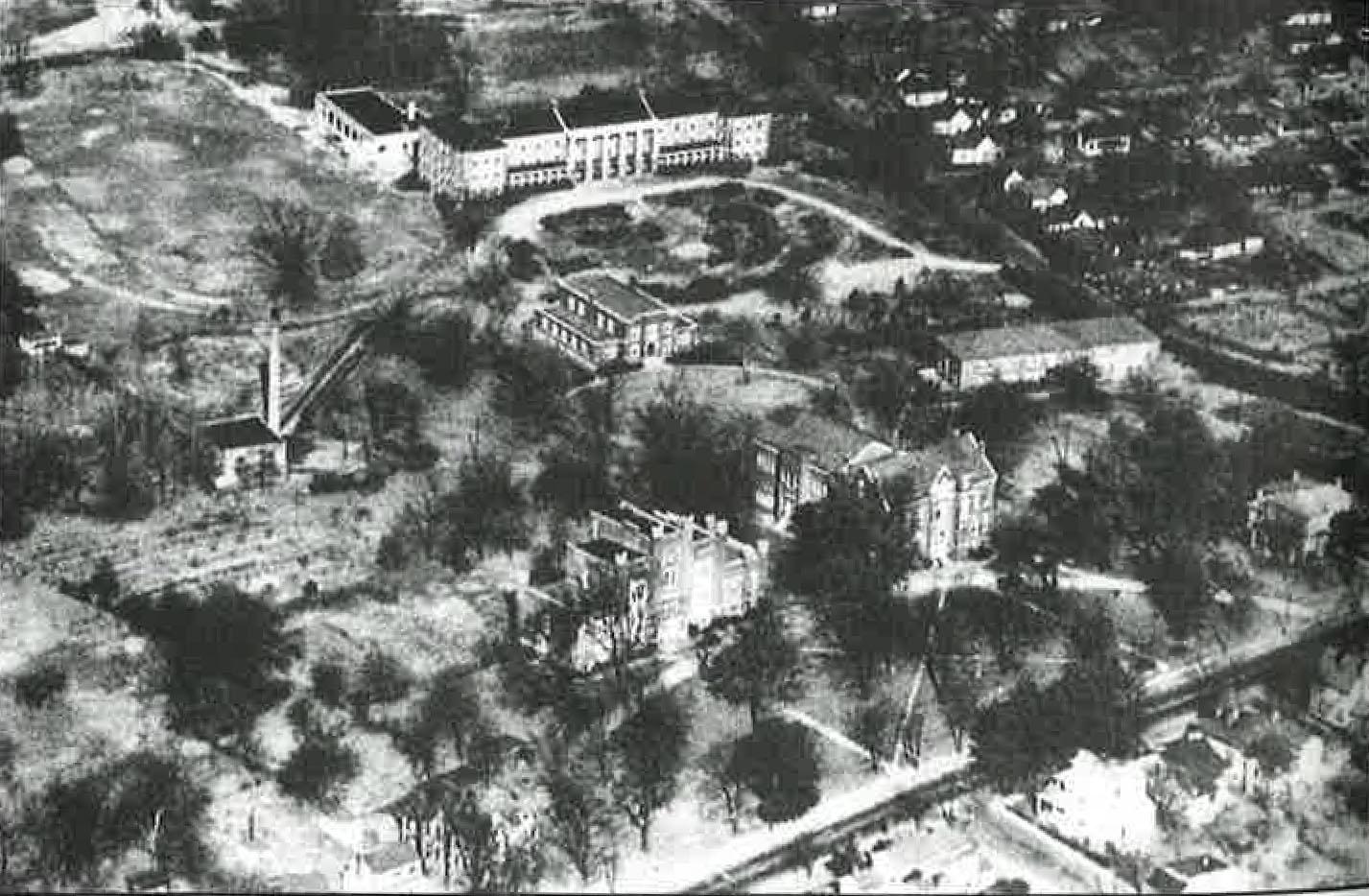2025-26 Student Handbook
About APSU

The About APSU section includes the following:
| The Basics | History | Mission Statement |
| Vision Statement | Alma Mater: “All Hail to Austin Peay” | Fight Song: “Smash! Bang!” |
| Govs Creed |

Dear student:
Welcome to Austin Peay. You are now a Governor, which means you’re part of a network of students, faculty, staff and alumni that is dedicated to your success! For nearly a century, our campus has provided a safe, nurturing home for generations of students to discover who they are and where they belong in this larger world.
Austin Peay is a place where talents are discovered, careers are launched and memories are forged. Please make the most of your time here. Get involved in campus life, make new friends and challenge yourself to step outside of your comfort zone. Make this academic year a time of wonderful new experiences; make it the foundation of the life you want. Have a great year, and if you see me or my wife, Kirsten, please make sure to say hello.
Let’s Go Peay!
Mike Licari, APSU president
The Basics
Gov. Austin Peay
Austin Peay was the governor of Tennessee from 1923-27, and one of Clarksville's favorite sons. He signed a law establishing Austin Peay Normal School on April 26, 1927. Although APSU itself has a 98-year history, institutions of higher learning have occupied the campus's location since 1806.
Campus and Enrollment
Austin Peay State University consists of more than 75 buildings on three sites occupying
637 acres. These include downtown Clarksville, the Austin Peay Center at Fort Campbell
and the Coleman Tractor APSU Farm Powered by Kubota.
Austin Peay continues to be a leader in growth and is currently the fastest-growing
public university in Tennessee, as well as the state's top choice for military-affiliaged
students. We serve students from every region of Tennessee, many of the 50 states
and several countries.
The Govs
In the infant years of intercollegiate competition, Austin Peay’s athletic representatives were often called “Normalites” or “Warriors.” The present “Governors” tag surfaced around 1937, probably as a tribute to Gov. Austin Peay.
Return to Top of Page
History
Austin Peay State University is located on an urban campus that has been used for educational purposes for more than 218 years. Seven colleges previously called the campus home:
| Rural Academy 1806-1810 |
Mount Pleasant Academy 1811-1824 |
| Clarksville Academy 1825-1848 |
Masonic College 1849-1850 |
| Montgomery Co. Masonic College 1851-1854 |
Stewart College 1855-1874 |
| Southwestern Presbyterian University 1875-1925 |
Austin Peay Normal School 1927-1943 |
| Austin Peay State College 1943-1967 |
Austin Peay State University 1967-present |

A Legacy of Leadership
The university began as Austin Peay Normal School when it was created as a two-year junior college and teacher-training institution by Act of the General Assembly of 1927 and named in honor of Gov. Austin Peay, who was serving his third term in office when the school was established.
In 1939, the state board of education authorized the school to inaugurate a curriculum leading to the Bachelor of Science degree. The degree was first conferred on the graduating class at the 1942 spring commencement. By Act of the Tennessee Legislature of Feb. 4, 1943, the name of the school was changed to Austin Peay State College. In 1951, the state board authorized the college to confer the Bachelor of Arts degree and, in 1952, to offer graduate study leading to a Master of Arts in education. It evolved over the decades into a college before eventually becoming a university in 1967. Today, Austin Peay has transformed into a major regional provider of higher education, with the university offering two doctoral degrees – a Doctor in Education (Ed.D.) in educational leadership and a Doctor of Psychology (Psy.D.) in counseling psychology. The university is also home to a growing Master of Business Administration (MBA) program that offers Tennessee's first academic concentration in artificial intelligence.
During its history, 11 presidents and four acting presidents have served the institution:
| John S. Ziegler 1929-1930 |
Philander P. Claxton 1930-1946 |
| Halbert Harvill 1946-1962 |
Earl E. Sexton (Acting) September-December 1962 |
| Joe Morgan 1963-1976 |
Robert O. Riggs 1976-1987 |
| Oscar C. Page 1988-1994 |
Richard G. Rhoda (Interim) July-October 1994 |
| Sal D. Rinella 1994-2000 |
Sherry L. Hoppe (Interim) 2000-2001 |
| Sherry L. Hoppe 2001-2007 |
Timothy L. Hall 2007-2014 |
| Alisa R. White 2014-2020 |
Dannelle F.W. Whiteside (Interim) August 2020-March 2021 |
| Michael J. Licari 2021- present |
Return to Top of Page
Mission Statement
Austin Peay State University is a mission-driven, community-minded institution that provides transformational experiences through innovative, creative and scholarly activities. We welcome and inspire a community of learners to make a positive impact regionally and globally.
Return to Top of Page
Vision Statement
We will be the region’s university of choice for those seeking to improve their lives. We will achieve this vision through student-centered teaching, unique developmental opportunities and our focus on innovative research and public service.
Values
We are a collaborative community that values personal growth and life-long engagement through the promotion of integrity and academic excellence.
• Academic Excellence: By providing meaningful and practical learning opportunities with highly qualified
and dedicated faculty and staff.
• Integrity: By maintaining an honest, fair and credible environment.
• Community: By fostering learning in an environment where all are welcomed and valued.
• Personal Growth: By providing the knowledge, tools and resources for all Governors to reach their
full potential.
• Lifelong Engagement: By providing services, programs and experiences that promote loyalty, pride and mutual
support.
• Collaboration: By enriching our local, regional and global communities through value-added programs,
strategic partnerships and meaningful service.
Return to Top of Page
Alma Mater: “All Hail to Austin Peay”
All Hail our Alma Mater,
All Hail to Austin Peay,
Forever faithful to thy standards will we ever be,
We love thy campus beauty, serene in dignity,
And so we proudly sing this song in praise of thee,
All Hail, All Hail,
We sing in praise of thee,
We love our Alma Mater,
All Hail to Austin Peay.
Words and music by Dr. Aaron Schmidt, professor of music and band director, 1956-87
Return to Top of Page
Fight Song: “Smash! Bang!”
Smash! Bang! To victory
Go the Governors of Austin Peay
Clash! Clang! It’s misery
For the minions of the Enemy
Fight on and
Smash! Bang! to Score Again
For it’s ready, set 1, 2, 3!
Smash Bang! Biff Bam! Clash Clang! Rim Ram!
Dash along to Victory!
Let’s Go Peay!
Return to Top of Page
Govs Creed
“As a member of the Austin Peay State University community, I will agree to act with personal and academic integrity while interacting with my fellow students, faculty and staff members. I will charge myself to be accountable in all phases of interaction. I will respect the dignity of all persons and will appreciate and celebrate a climate of diversity. I will contribute to the greater good of the community. I will take pride in Austin Peay State University.”
— Established by the SGA Student Tribunal in 2008
Return to Top of Page
Contact Information
Austin Peay State University Toll Free: 1-877-861-APSU
601 College Street Email: gov@apsu.edu
Clarksville, Tennessee 37044 www.apsu.edu
Telephone: 931-221-7011
Office Hours: 8 a.m.-4:30 p.m. Monday-Friday
IMPORTANT: About This Handbook
The policies, procedures and programs of APSU are continually reviewed. Every effort is expended to ensure this handbook represents accurate information at the time of publication, but it cannot be guaranteed that information contained herein will not change. This handbook does not constitute a contract between the University and the student. APSU may cancel or revoke any part of this handbook without notice. The university reserves the right to make changes as required or as needed to dates, programs, events, policies, regulations and rules, as well as determine the effective date for such changes. Failure to read this handbook does not exempt students from following regulations, requirements, procedures and policies described herein.